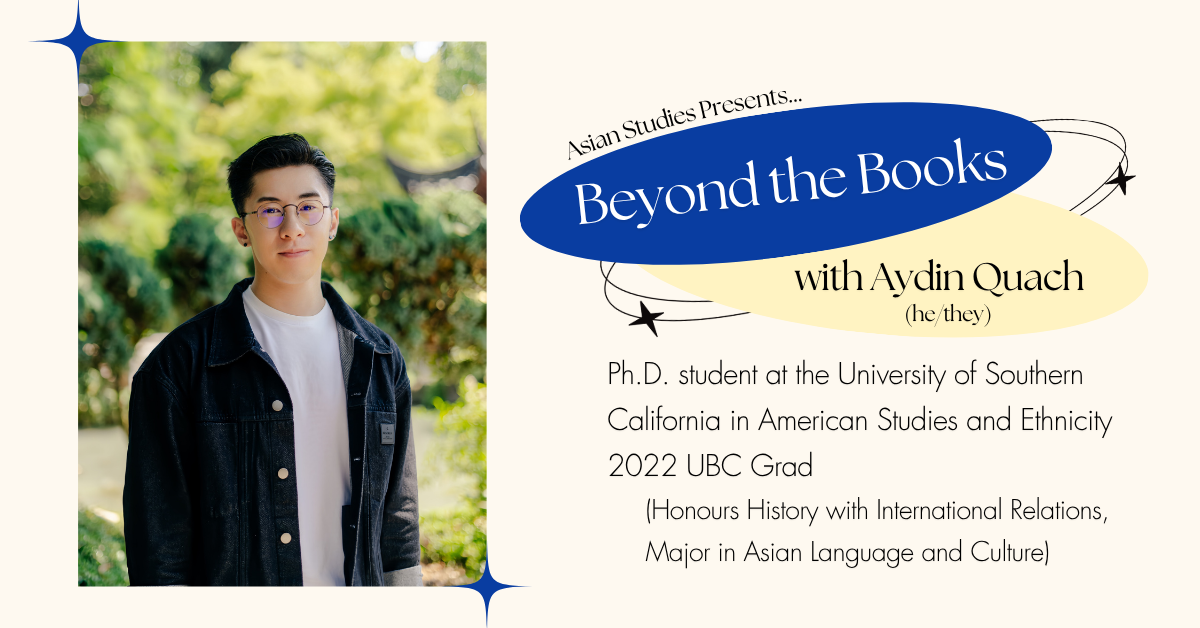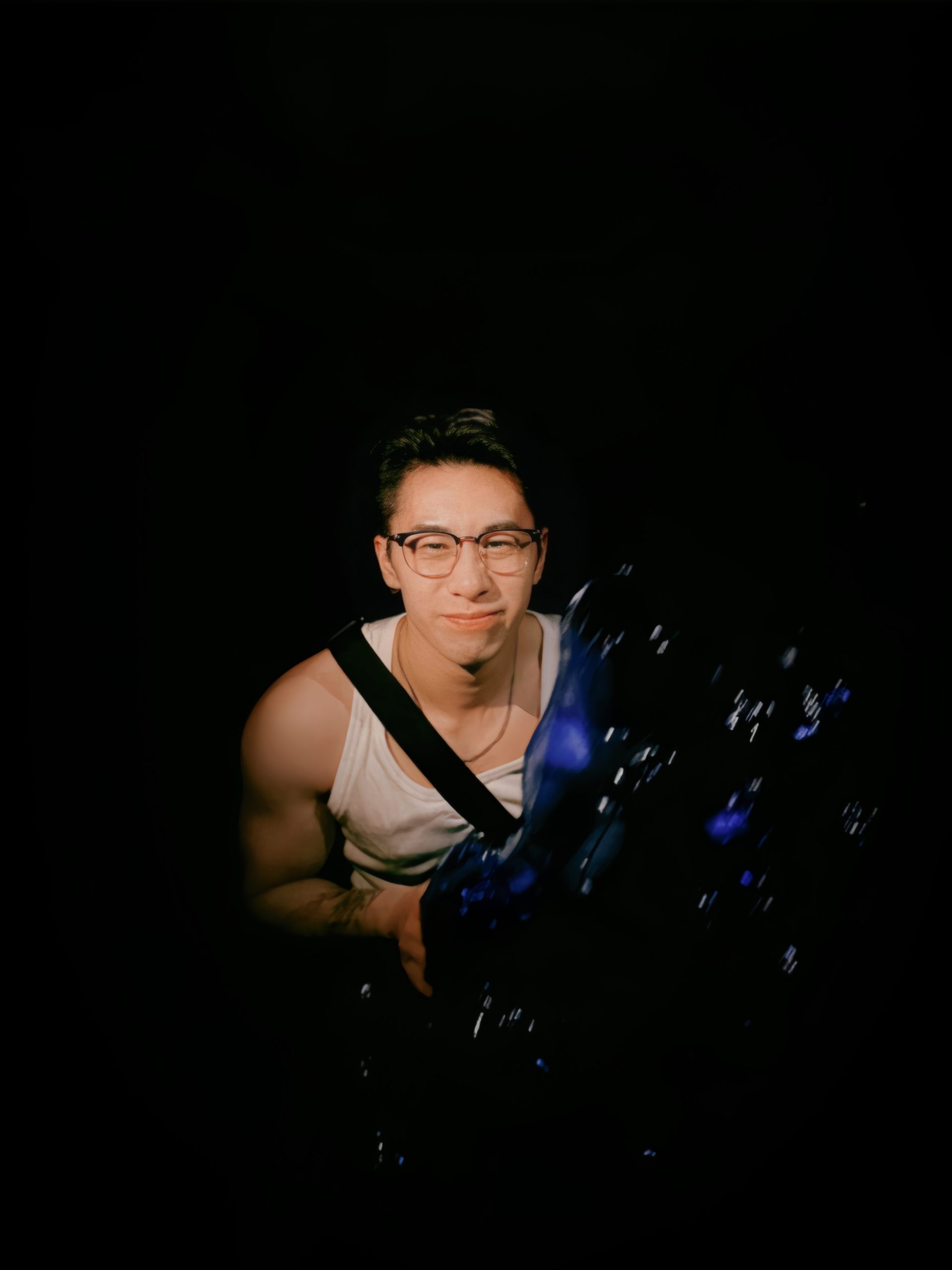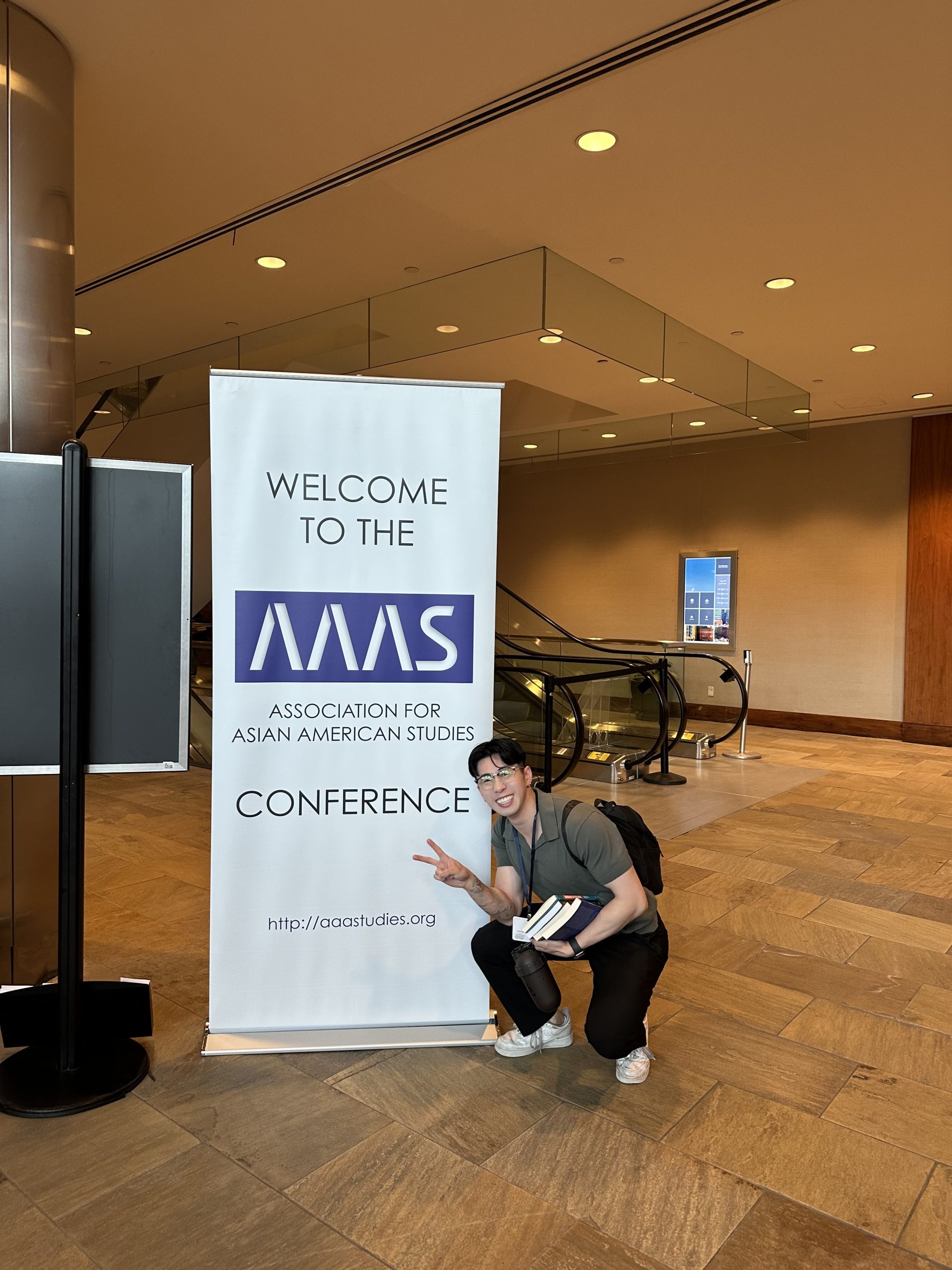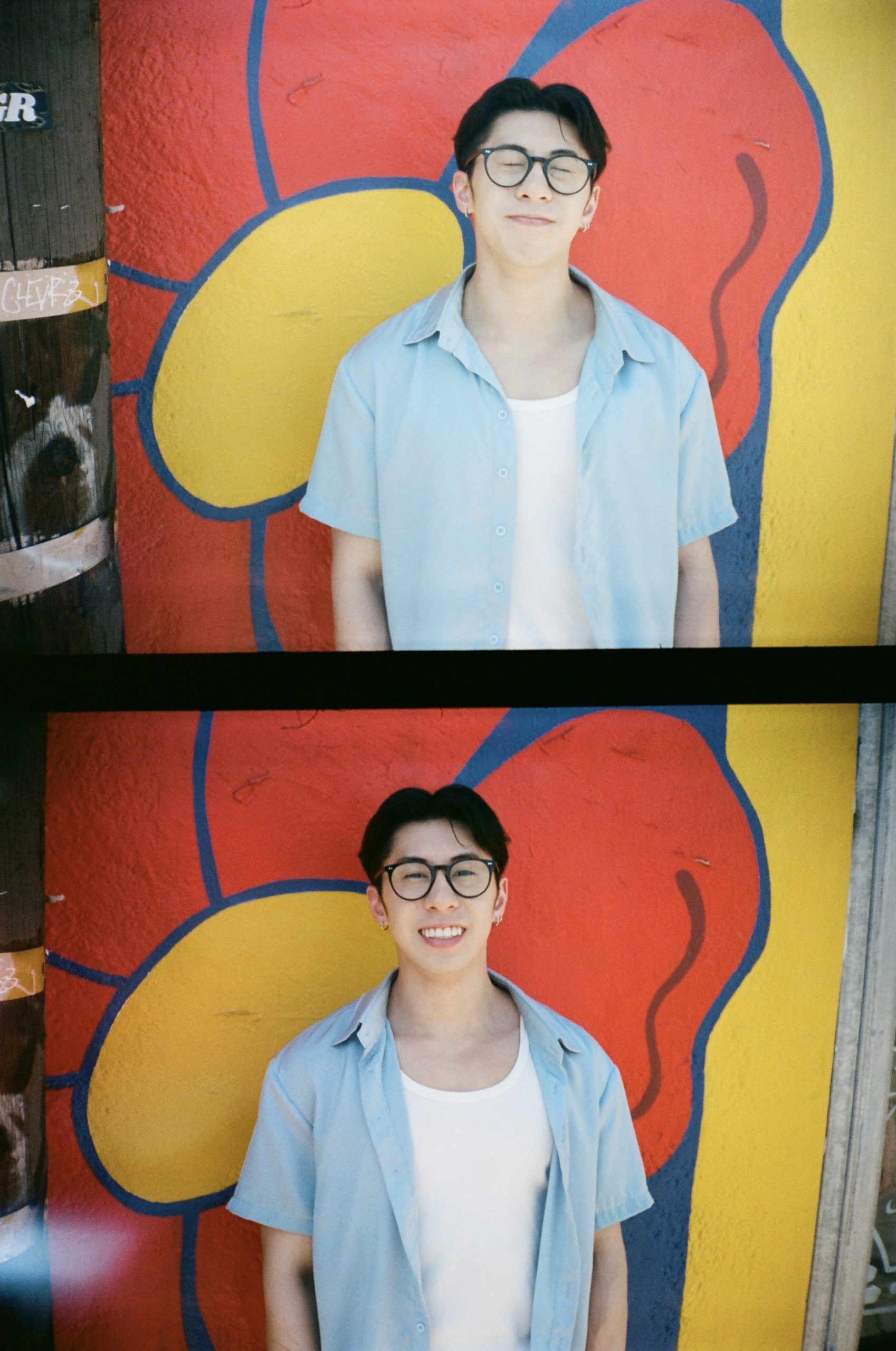Whether you have already locked in an internship, are still cranking out applications, or are hoping to get a peek into the places your Asian Studies degree can take you, you’ve come to the right place! In this year’s Alumni Features series, Beyond the Books, join us in exploring career possibilities and advice from folks who were once in your shoes!
In this installment, we’ll hear from Aydin, who graduated with a double major in Honours History with International Relations and Asian Language and Culture in 2022. He is currently a Ph.D. student at the University of Southern California in American Studies and Ethnicity.


Skip to:
- What did you study at UBC and what do you do now?
- What is your current degree and research about? What made you interested in the topic?
- What made you decide to pursue academia/further your education as opposed to joining the workforce?
- How has your time with Asian Studies helped you in your journey?
- What should an Asian Studies student who is thinking of getting a postgraduate degree consider? Is there any advice you want to share with current students?
What did you study at UBC and what do you do now?
I graduated with two degrees from UBC and was very indecisive when trying to figure out what I wanted to major in for my undergrad. Originally, I intended to major in Music and History, but after participating in a GoGlobal Seminar with the Chinese Language Program, I immediately switched to a major in Asian Studies, specifically in Chinese Language and Culture. Eventually I also pursued an Honours degree in History with International Relations to explore my heritage as a Chinese diasporic person with roots in Southeast Asia (Brunei on my mom’s side, Vietnam on my dad’s side).
Music never left my life though. I was involved with UBC A Cappella, UBC Choirs, as well as UBC Dance Horizons. I also continued my high school love for dragon boat by joining UBC Dragon Boat. It led me to the role as Cultural Coordinator for Dragon Boat BC, where I had the opportunity to work with the Chinese and Indigenous communities in Chinatown to host cultural events and music festivals.
I am now pursuing my Ph.D. at the University of Southern California in Los Angeles under the Department of American Studies and Ethnicity.


What is your current degree and research about? What made you interested in the topic?
My current doctoral program is about queer Asian/American nightlife and the sounds of nightlife, specifically Electronic Dance Music or “EDM,” that cross the transpacific. I was never much of a clubber or an EDM person before the COVID quarantine, but being on Zoom/Discord calls where my friends talked about how they missed the dance floor and raves made me curious to go to my first rave/music festival. I went to my first one and fell in love!
I am interested in why queer Asian/Americans attend and participate in nightlife events and how it makes them feel good! My work is interested in how queer people create nightlife events, as well as what they do at nightlife events. What comes out of queer people traveling between party places in North America and Southeast Asia? My work sits in between Southeast Asian Studies and Asian American Studies as a transpacific “crossing.” I think that the dance floor is a microcosm or an extended metaphor for the state of the world right now, especially with the rise in anti-Asian hate, violence against the queer community, environmental crises, and the mass physical and mentally disabling events happening in the world. If I had to bottle my research into one question, it would be: “What does it mean to dance at the end of the world?”


What made you decide to pursue academia/further your education as opposed to joining the workforce?
As anyone will tell you, don’t go into academia for money! I had every intention to stop school after doing my master’s degree in History, but every time I went to the club, went to a music festival, listened to EDM on the 99 B-Line, or would DJ at home, I had this burning question about what my immigrant ancestors would think about this queer immigrant kid (me) having fun on the dance floor. How was this thing people sometimes think of as frivolous so central to making it to the end of the workweek for young people? What can we learn from having fun? These burning questions quite literally haunted me every time I was out partying, and led me back to academia.


How has your time with Asian Studies helped you in your journey?
My background in Asian Studies has given me a super important vantage point for my research into Asian/American Studies and diaspora studies at large. I am so proud of being “in between” subjects and being at the crossings of Asian Studies and Asian American Studies. Being able to incorporate the scholarship from Asian Studies into Asian American Studies is still something that is not done that much, and being able to recall readings, works, and conversations I had with professors from my time at UBC has been so valuable.
As someone whose family has lived in Southeast Asia for generations before immigrating to Canada and now my placement in the USA, I also think my language and culture skills from Chinese that I cultivated in CHIN courses, as well as while on exchange in Taiwan, have given me much to consider about my own (dis)placed Chinese identity. These intercultural skills from learning Chinese as well as from my courses in Asian Studies have been pivotal to my current goals of picking up Vietnamese for my Ph.D.


What should an Asian Studies student who is thinking of getting a postgraduate degree consider? Is there any advice you want to share with current students?
Despite all the negativity that could be said about grad school, getting paid to read, teach, and write is truly a great privilege in our chaotic world! Whether it is a master’s, a doctoral, or a professional degree, do something you love that is life-giving and world-making. Don’t be afraid to explore “in-between” subjects because the program and community that will speak to your questions and project might not be solely within Asian Studies, but Asian Studies can serve as your guide and foundation for cool, amazing things.
I think it’s quite normal for undergraduates to be anxious about the ominous “job market” once you graduate, but as recent events have shown, everyone is having a hard time on the job market, even those who have STEM degrees. AI is making everything and everyone replaceable. What will become valuable in the job market is being “human,” and I think a training in Asian Studies about the human experience, communication, and intercultural competency will be invaluable. Perhaps, the most important thing is to study what you love and are passionate about, because what is more human than having passion?
Enjoyed this article? Read our other Alumni Features!



